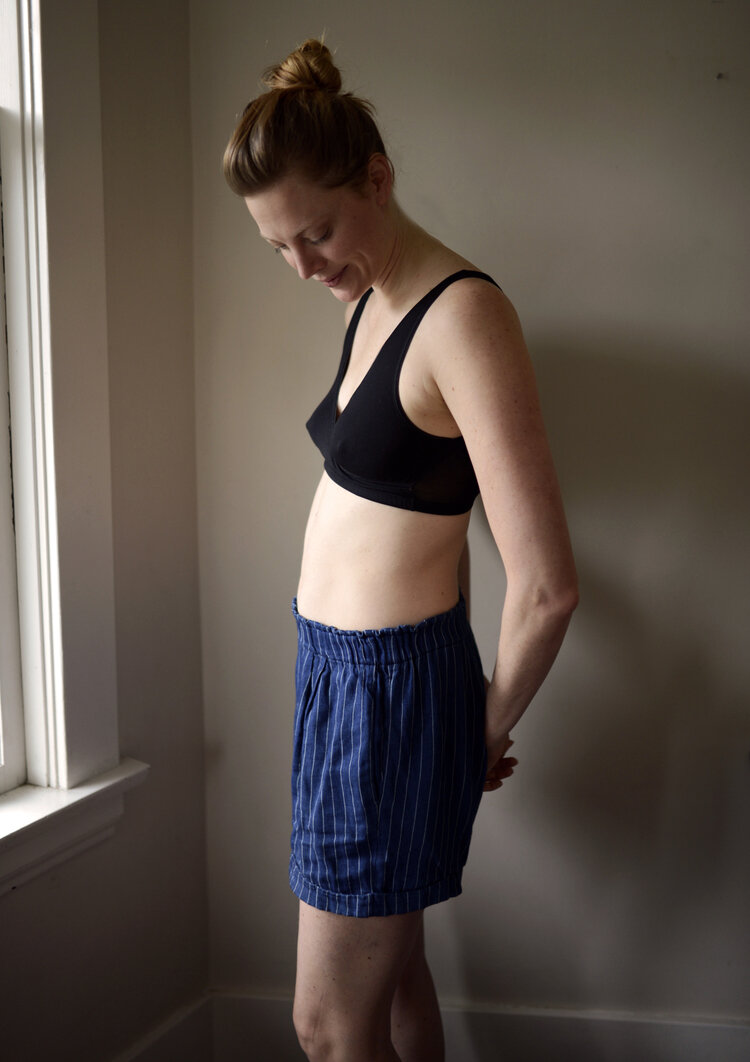My First Trimester & Morning Sickness: Baby #2
My first trimester was humbling to say the least.
I actually won’t refer to my experience as having “morning sickness” because as many women can attest, the feelings of nausea are rarely confined to the morning hours. I could sometimes make it through the morning without getting sick but it always worsened around 6pm, then I’d spend most evenings in the bathroom… miserable.
Nausea and vomiting in pregnancy is a common condition that affects up to 85% of women to varying degrees. It typically begins around 4-9 weeks (mine started at 6.5) and usually eases around 12-16 weeks, although some do suffer throughout their entire pregnancy. At 14 weeks mine has shown no signs of easing yet. Even though morning sickness is common, to me it just doesn't feel normal.
I experienced no nausea at all in the first trimester with my son. I’ll admit that I remember attributing it exclusively to the care I put into my well being during pregnancy and the fertility preparation leading up to it. Although I continued to be very mindful with both of these during this pregnancy as well… so what changed?
There are many theories as to why: everything from it being a protective mechanism to a deficiency in certain nutrients, but no one really has any answers. Personally, the only thing that makes any sense to me is the hormonal factor.
Before I had my son I had very distinct premenstrual symptoms. Although after my son was born, the predictable symptoms I had become familiar with vanished and were replaced with completely different symptoms. This was a significant indicator that my hormones had shifted, justifiably after pregnancy and breastfeeding. If the shift in hormones could cause such a change in PMS, then they could understandably cause my pregnancy symptoms to be quite different as well. I also experienced pretty significant breast tenderness in the early days of my first pregnancy, but I haven’t had any in this pregnancy, which further points to the likely shift in my hormonal balance. In hindsight I could have spent more time adjusting my balance postpartum before becoming pregnant again. I told myself that we needed start trying sooner than later because my husband is 12 years older than I am. But the honest truth is, I had baby fever... and I had it bad.
How I managed morning sickness
Did I find a miracle cure that brought my nausea to a complete halt? Sadly, no… although I found a few ways to make it more manageable.
Avoiding triggers
Dear vegetables, I’m so sorry that I let you rot in the back of my fridge. I really did have every intention of eating you. My brain said YES, but my body said NO. Pregnancy is weird.
Unfortunately these can change at a moments notice without warning, but some consistent triggers were…
Fried onions
Fried garlic
Cooked cauliflower… and often the entire brassica family
Scented liquid soap in public washrooms
Ginger: which is a well known for help combat nausea in pregnancy, but even the thought of the strong flavor during times of nausea was a turn off.
Water: so important to stay hydrated during pregnancy! It was hard to keep water down at all, but it was best consumed between meals, definitely not after a meal.
Bone broth
My bone broth for pregnancy recipe was nourishing and comforting when nothing else was.
B6
I decided against taking the pharmaceutical anti-nauseates prescribed for pregnancy, which are a combination of antihistamines and pyridoxine (B6). Instead I supplemented with up to 200 mg/day of B6, a well-researched nutrient that can help ease nausea in pregnancy.
Magnesium
I’d read a lot about the theory of morning sickness being linked to magnesium deficiency. I’m confident that this wasn’t the cause of my nausea because I was sure to increase my intake prior to pregnancy, but I did start supplementing with magnesium once nausea began just to see if it helped. While it didn’t noticeably reduce my symptoms, it may be worth a try as it has helped alleviated symptoms in other women. It can also help with hypertension, muscle cramps, and headaches in pregnancy. My favorite method is transdermal (topical) magnesium for the most efficient absorption.
Keeping blood sugar stable
Crackers and ginger ale are the two most common foods associated with nausea, but avoiding refined grain products and sugar is the best way to keep blood sugar stable, which helps reduce nausea. Make sure not to go too long without eating and include protein and healthy fats in each meal and snack. Although cravings for plain refined foods like bread and pasta can increase in early pregnancy, these foods can cause spikes in blood sugar, which can aggravate symptoms of morning sickness.
Staying active
Not always easy when feeling queasy and tired, but I stayed active through the first trimester… even if I was a little slower and logged a few less miles than usual. Exercise strengthens you for the physical task of labor. It also improves mood, digestion, and circulation, which helps your baby to receive nutrients and oxygen more effectively.
Looking on the bright side
I found the most helpful thing to do was to keep looking on the bright side. Morning sickness is not a sign of a compromised pregnancy; actually those with nausea have a lower rate of miscarriage.
Although my nausea caused other symptoms that mimicked depression (lack of motivation, wanting to stay in bed, lack of appetite, feeling less social, not enjoying things that usually brought me joy), I kept reminding myself that I’m not depressed and that too shall pass. I am still truly and utterly in awe of the pregnancy journey even though it has been quite a different experience for me this time. As I’m discovering… just like every child is different, every pregnancy and birth is different as well.
Oh Baby bump updates
5 weeks pregnant
Blissfully unaware of the nausea that would soon set in.
14 weeks pregnant
There's quite a bit of discrepancy as to when the first trimester actually ends. Some say 12, 13, others 14 weeks. I went with 14 because I was still very much feeling first trimester symptoms at this point. Admittedly no baby bump to speak of yet... just ever so unremarkably softer. I wanted to document this pregnancy better than I did with my first and you've got to start somewhere!





